Squid Game and Parasite composer reveals secret to award-winning music
- Published
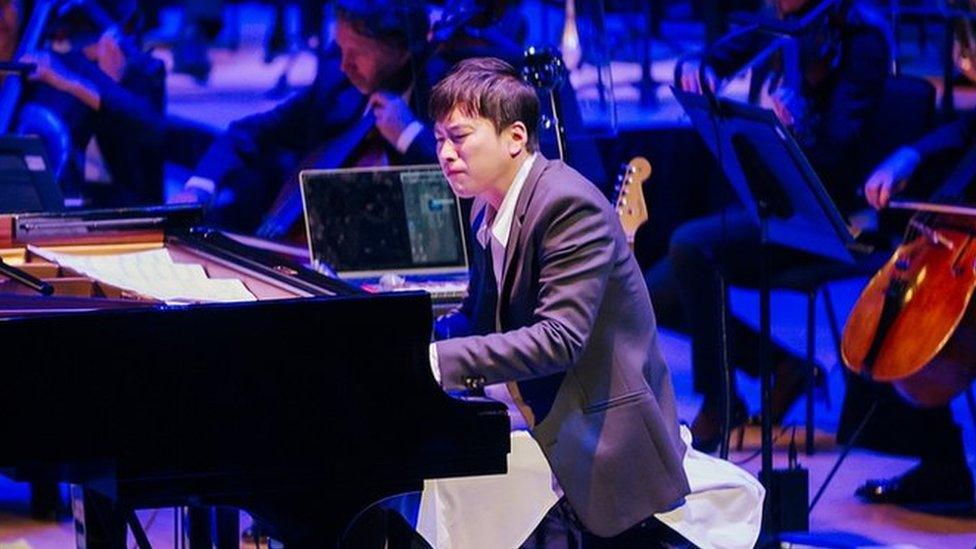
Jung Jae-il opened the K-Music Festival alongside the London Symphony Orchestra
You may have watched grisly Korean thriller Squid Game or dark comedy Parasite. But did you know the music in these films was composed by the same man?
Squid Game - which follows a cast of debt-ridden contestants who play twisted children's games to win a huge cash prize - would not work without its hair-raising soundtrack.
Simple, childlike melodies are laid over scenes of terror. A soft, jazzy rendition of Fly Me to the Moon plays as contestants are massacred on-screen.
This spine-chilling contrast set the tone for the whole series.
Parasite's score features low-key piano pieces - emotional and tense - as a biting satire on class and capitalism unfolds.
A scene in which its cash-strapped protagonists hatch a dramatic plan to infiltrate a well-to-do family is set to The Belt of Faith, a semi-classical, semi-Baroque symphony.
These are seriously different sounds. But one person masterminded them both.
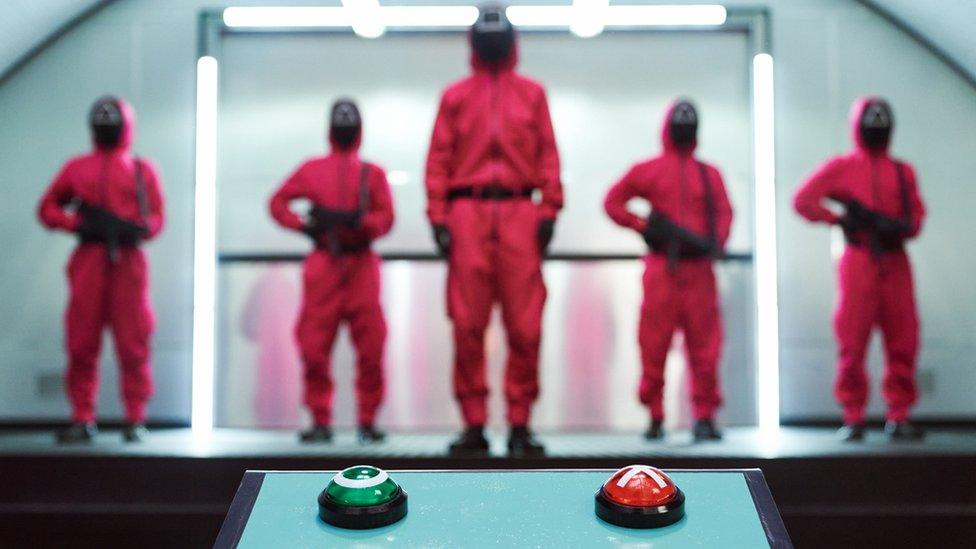
Squid Game became Netflix's most-watched original series of all time
It is South Korean composer Jung Jae-il, and he remembers the moment he "fell in love with film music".
He says that working with Oscar-winning director Bong Joon-ho on Okja, a Korean film about a genetic super-pig released in 2017, elevated his career to a new level.
Jung said it allowed him to "express all kinds of musical genres and all kinds of feelings - happiness, despair, sorrow, everything".
He adds: "That was very exciting for a composer."
Jung is able to switch between a wide range of musical genres - but how does he do it?
"It's not so easy to make the transition," he says. "But whether they ask for classical, rock or hip-hop - I have to do it."
At a recent talk at the British Film Institute in London, Jung described the process of composition in more detail.
After receiving an excerpt of a script or first cut of a film, he starts with simple piano and guitar improvisation, which he constantly repeats until he finds a tune he likes. And then he writes it down (he describes himself as "quite an analogue person").
Whether or not there is a specific brief from the director does not matter at this stage.
If he is instructed to go in a certain direction, he will try to improvise accordingly. But if not, he plays what he wants and sees where that takes him.
After this, there is more repetition, until he gets to a point where the feeling of the piece works for the film in question.
"I have to do it this way because it's the only way I can see if the emotions I have come up with match the emotions on screen."
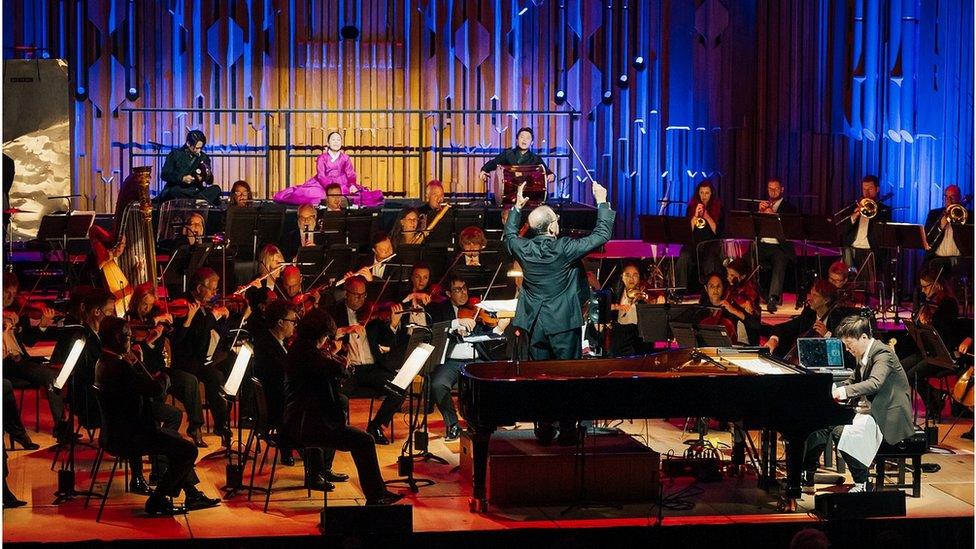
Jung is a musical polymath of sorts - deftly switching between diverse genres
Jung is a multitalented musician, who never wanted to be a professional as a child.
He took piano lessons as a youngster - a rite of passage for middle-class South Korean children - but found it "terribly boring", he told the BBC.
But once Jung started making his own music at the age of 10, he realised it allowed him to express his feelings, which he says now he finds easier on the piano than through language.
The ease of musical self-expression ultimately translated into a career.
Jung soon became the bass player for a Korean funk band, landed paid gigs at 17 and started composing music for pop groups, films and anyone else who offered.
'More bizarre and unique sound'
Bong also directed Parasite - and called Jung "the most detailed and delicate music director on earth", but rejected his Baroque-style score for Parasite more than seven times.
Jung had never written that type of music before, but now can switch between a wide range of genres - from Balkan brass to Baroque, classical orchestra to melancholy ditties.
Jung has not just stuck to the film world. In April 2018, he was the musical director and a main performer at the farewell concert for the South-North Korea Summit.
That made him one of the few artists outside North Korea to have performed to its leader Kim Jong Un.
Jung confirms that he is also going to mastermind the music for the forthcoming second series of Squid Game.
He promises it will keep some elements from the first series, but will ultimately be a "more bizarre and unique sound".
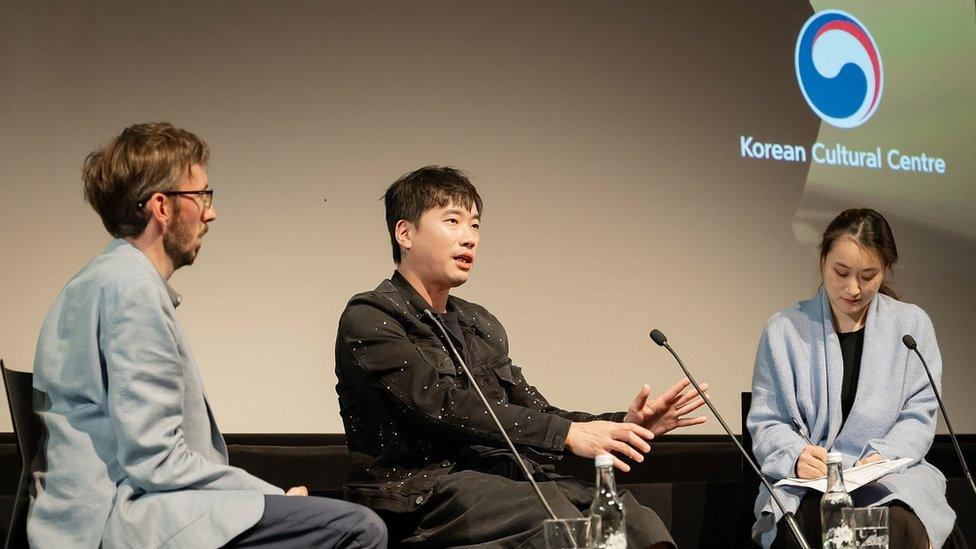
Jung says writing music allowed him to express himself fully, in a way language did not
Jung adores his craft, but warns budding musicians it is difficult.
He told a mother seeking advice for her teen who wanted to become a composer to "seriously reconsider" that path.
"I don't think I'm in a position to give advice, but I would say really think it through.
"You have to be extremely persistent and need to enjoy the process. If not, it's going to be very, very difficult."
It is, however, a path he has taken with immense success.
Related topics
- Published11 February 2020
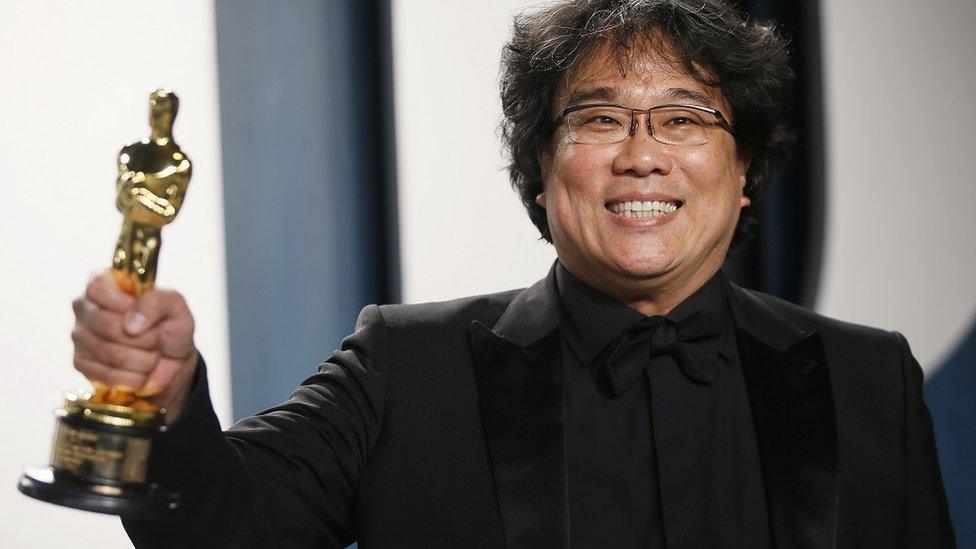
- Published27 February 2023
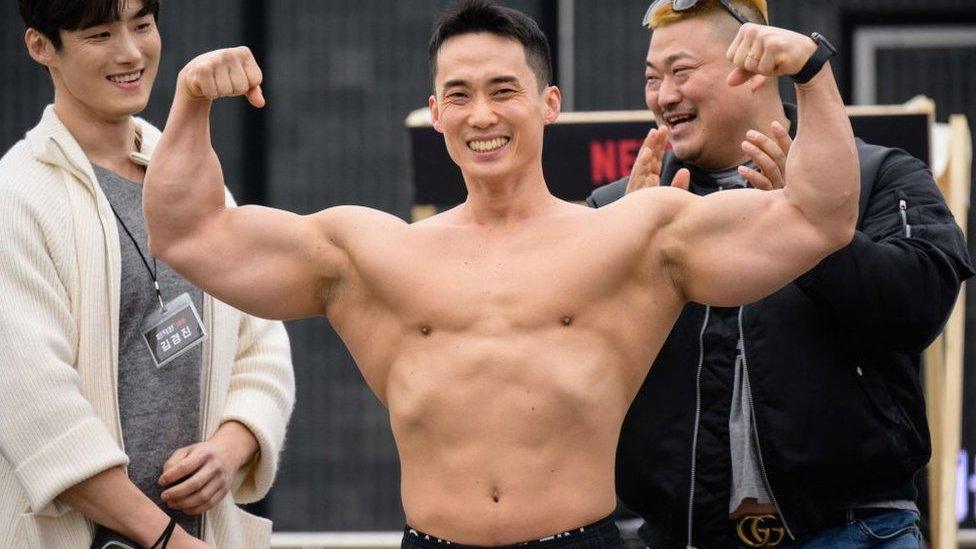
- Published1 October 2021
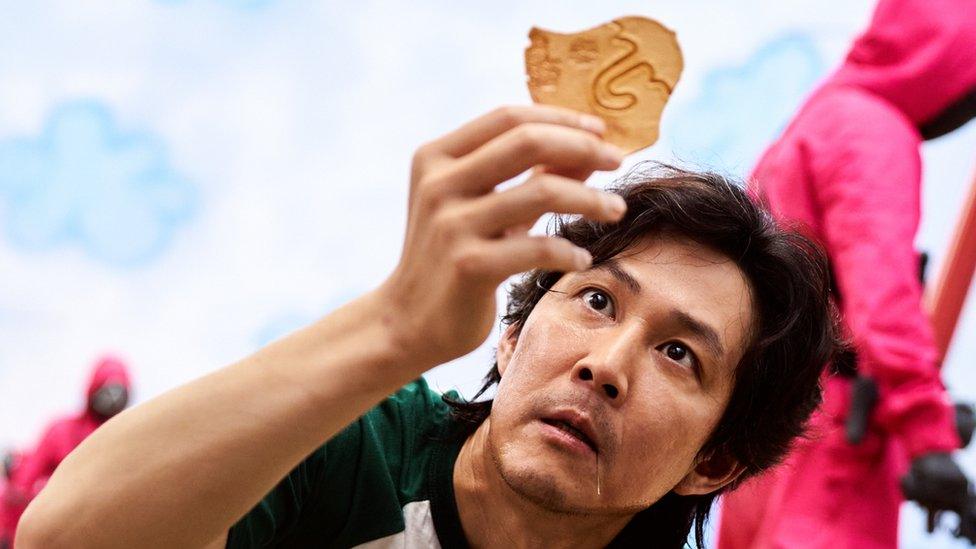
- Published25 April 2023
